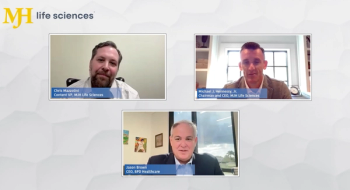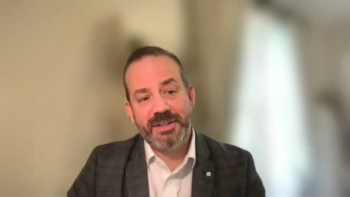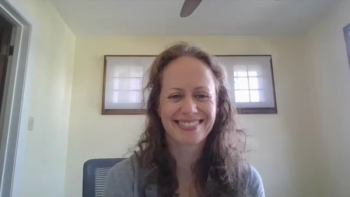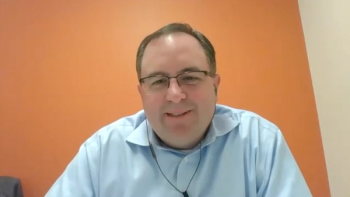
PX: What to Consider When Taking on a Big Data Initiative
What do you think health systems must consider if they want to take on a big data initiative?
What should health systems consider before taking on a big data initiative? How can they overcome initial failures to become successful? Our expert panel weighs in:
Leveraging Big Data and AI in the Hospital of Tomorrow
A Healthcare Analytics News™ Peer Exchange®
Segment 10/11
Kevin R. Campbell, M.D.: Let’s take this another way. Every good project can fall apart if it’s not planned out and done properly. If you make early mistakes, it can doom a project down the road. What do you think healthcare systems must consider if they want to take on a big data initiative?
Geeta Nayyar, M.D., MBA: I think that’s a great question. How do you fail and how do you fail early so that you can become successful? I don’t think we ever ask ourselves that enough. I’m a big believer in innovation, but the first thing that you have to do when you’re innovating anything, whether it’s big data—related or not, is what is the problem you’re trying to solve. So, I think number one as a health system, what are your top three strategic priorities? How do you then innovate back into that problem to find the solution? You have to create a culture where you are failing early or it is okay to fail, you budget that is kind of an X factor, since we don’t know how this is going to play out. We don’t know what we don’t know, and that’s OK to budget — this could be a revenue maker, it could not. The culture is so key, especially at health systems doing whatever you do with the medical staff, with the patients — not against them and not to them.
Kevin R. Campbell, M.D.: All stakeholders at the table, which is what our government failed to do with the ACA [Patient Protection and Affordable Care Act].
Geeta Nayyar, M.D., MBA: All stakeholders, correct.
>>
John Nosta, B.A.: You’re right. I’m concerned that fail fast is being confused with fail smart; I see this on the life science side, not in clinical medicine, but in pharmaceutical development that that’s sort of big idea — fail fast, fail fast. And I think being agile is part of that construct, recognizing where the errors are and making smart decisions about failing. The other thing is I want to echo the notion of culture, and I wrote about this several times: culture crushes innovation without a doubt.
David E. Albert, M.D.: No question about it.
John Nosta, B.A.: This is the single biggest inhibitor of transformational change in Corporate America today. I would argue it’s probably like that in the hospital — regimented rounds, right? It’s a pecking order; it’s military, and I think that unless people recognize the value of certain changes, unless a nursing staff recognizes the value of data and technology to varying degrees, you’re not going to drive those changes. We often look for the inspired leader, but it’s really not the inspired leader, it’s inculcating the nature of innovation into the rank and file that helps drive innovation; if you don’t do that, you’re doomed.
Kevin R. Campbell, M.D.: I totally agree with those comments. Dave, you and I have talked about fail fast and tech companies many times; I’d love to get your take. I like being agile. I like embracing risk. I have a bracelet that says, “Embrace risk,” but I say, “Embrace calculated risk.” Talk to me about fail fast.
David E. Albert, M.D.: The issue is, the Silicon Valley culture of fail fast has with medicine is that a failure in medicine has a human cost. It’s not just this screen — people didn’t like this screen; they didn’t like this GUI [graphical user interface]; they didn’t like this form factor — it’s that patient didn’t do well. We have the added burden of, as I said before, human beings involved, handle with care. And so, the notion that we can change a process and fail fast and innovate, in medicine we have another thing to consider: that there is a human being who is hurting or is sick that’s involved in that process; we need to be sensitive to that. I’m not saying that should inhibit completely the notion of failing quickly, but it should help you put into your calculus — the fact that we have human beings and their lives at stake. And that’s a unique challenge and charge that we are given.
Get the best executive insights directly to your inbox. Sign up for our
Related






































